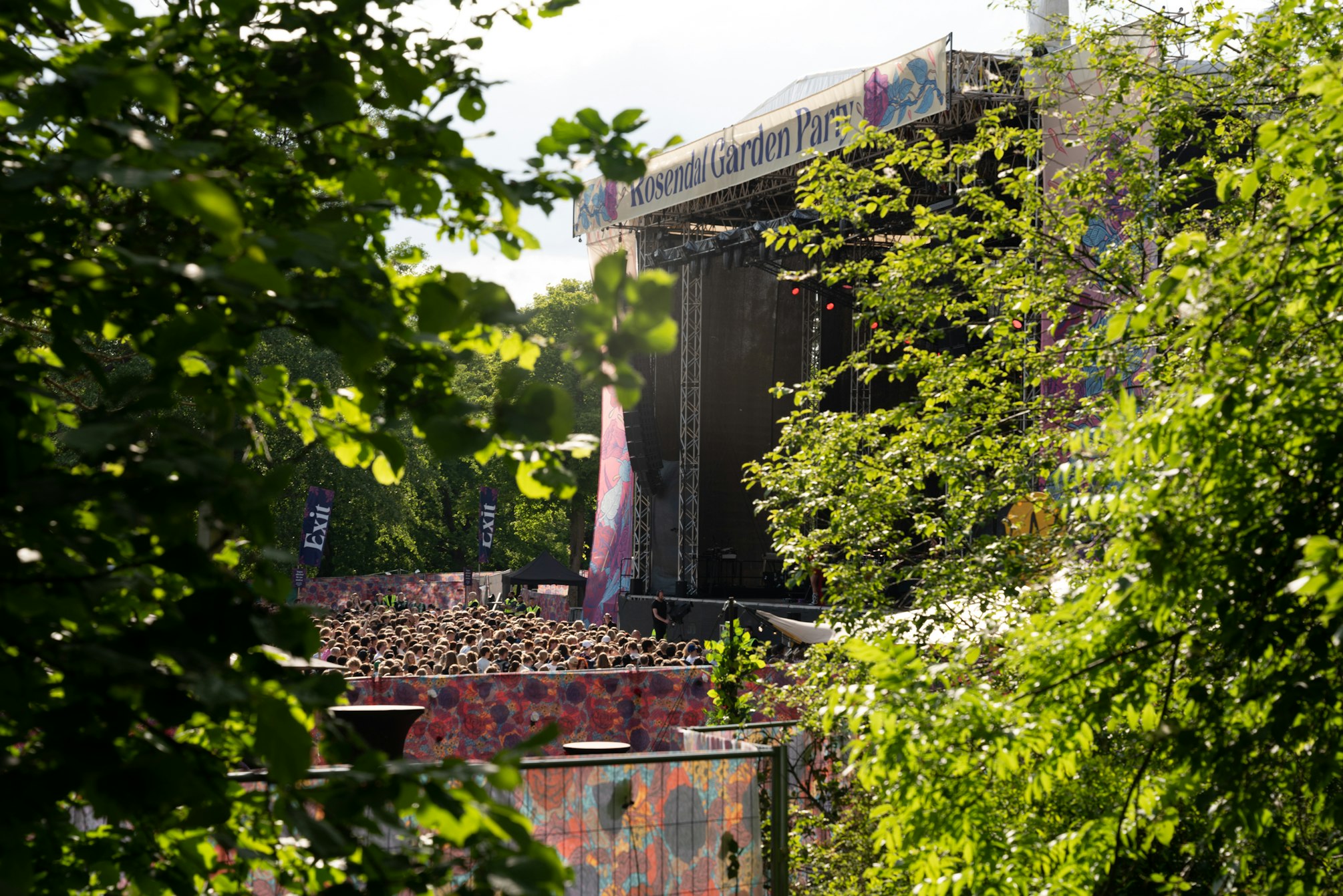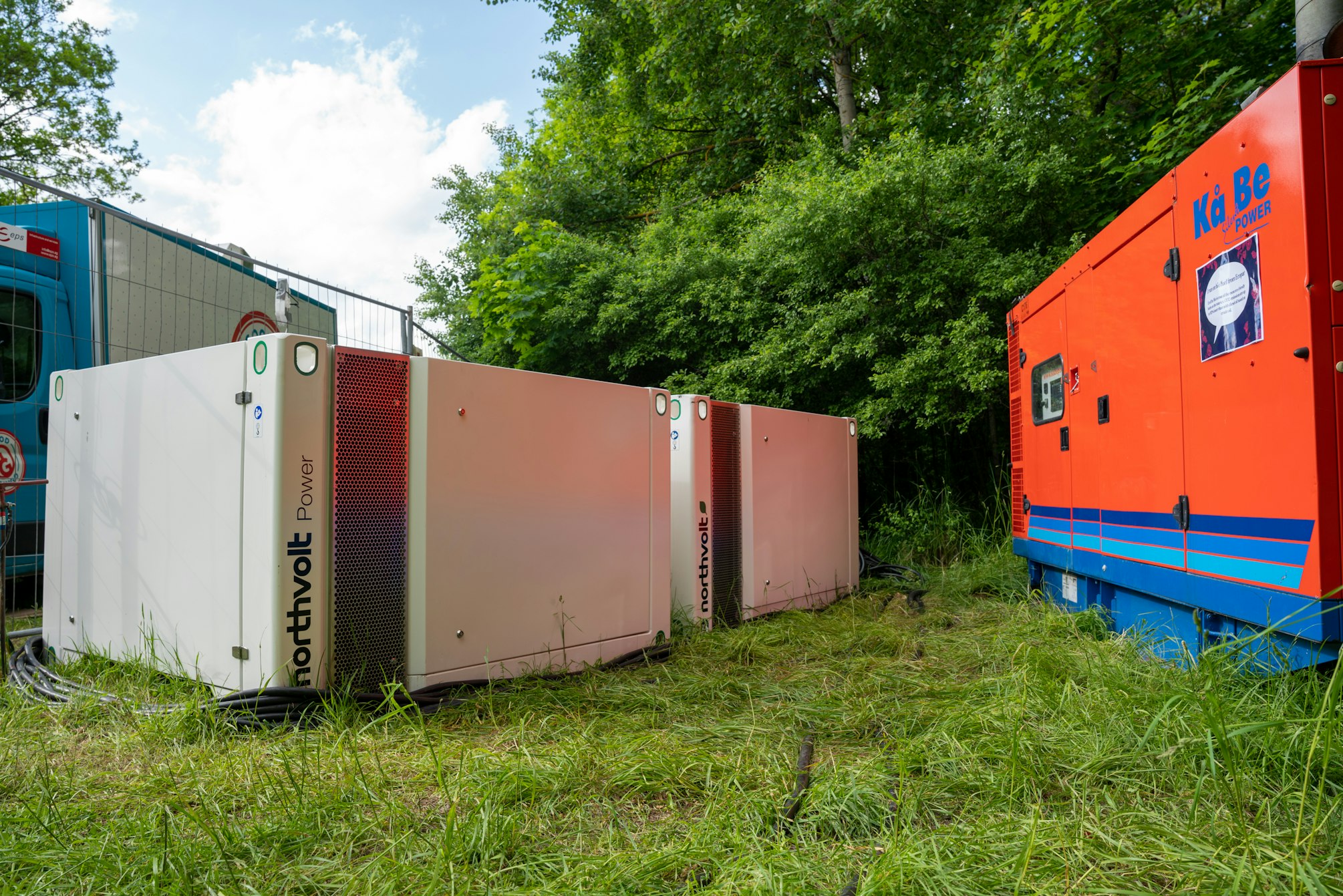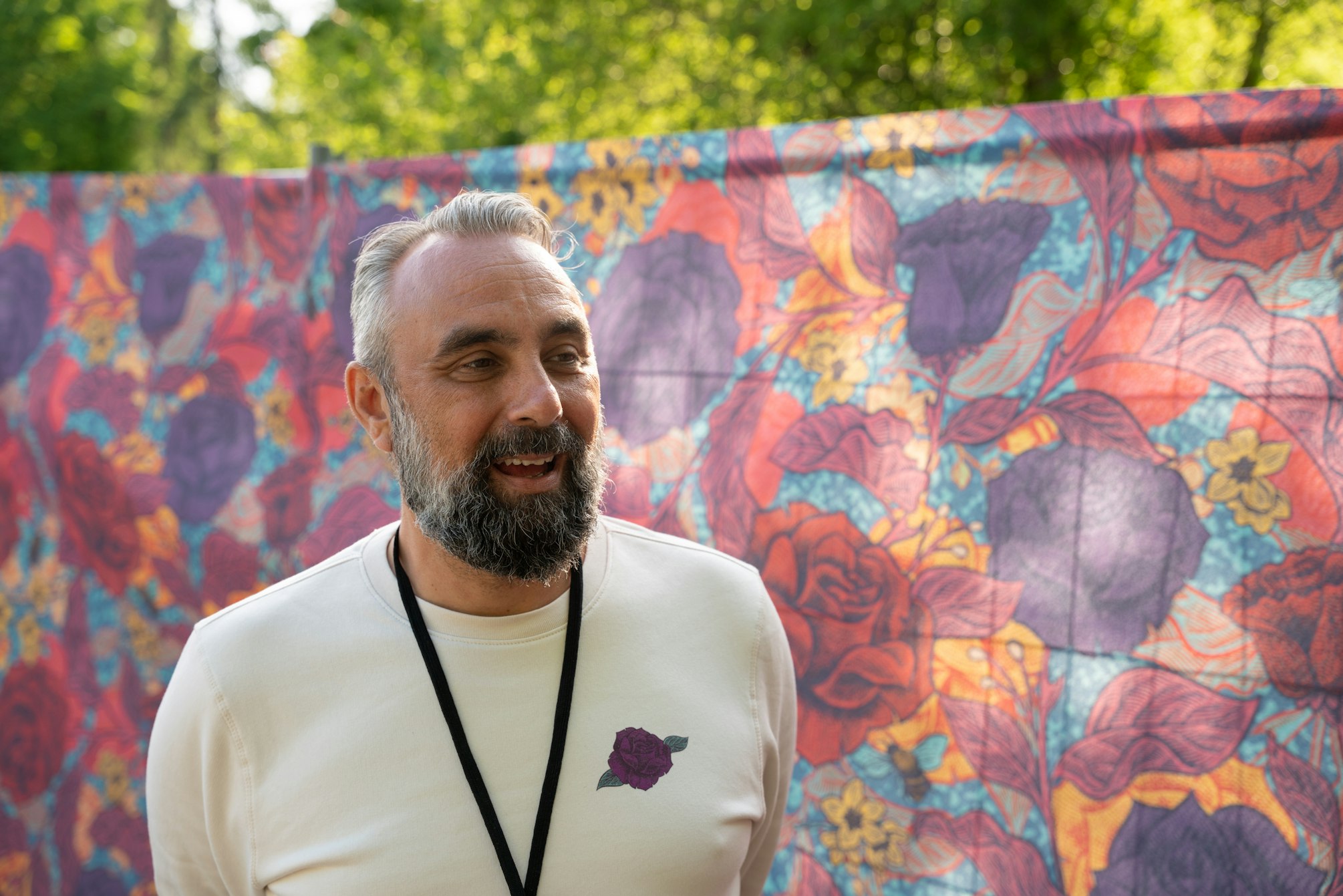Powered by Northvolt: a cleaner kind of festival
6 July, 2022
Generally high in environmental impact and single-use plastics, music festivals are not known for their sustainability. Festival dependence on diesel generators for power adds further weight to their carbon footprint. But at a recent festival in Stockholm, organizers were out to prove that more sustainable solutions exist. Here’s what happened.

The 10,000-person per day Rosendal Garden Party took place in June in Stockholm. Like most greenfield events, the four-day music festival was hosted off-grid, meaning that it was reliant on deployment of large diesel-powered generators. Looking to demonstrate a more sustainable solution, however, the organizers of the event, FKP Scorpio, approached Northvolt.
“Sustainability is absolutely coming to the front of the conversation around events and festivals, and we’re certainly thinking hard about how we operate and how we power them,” says Božo Rasic, Managing Director of FKP Scorpio Sweden.
“The new battery industry and solutions like Northvolt’s Voltpack Mobile have prompted us in the event industry to start to think how we can use these to lower our impact. Today we don’t really have the numbers on the benefits or the experience of working with batteries, so that’s what this demonstration was all about.”
The demonstration
To support the festival, Northvolt deployed a Voltpack Mobile battery system to power lights, drink stands and food trucks – services which Božo explained require a significant amount of power.
“The really high electricity consumer is of course behind the stage – the lighting, the sound etc. Getting artists and production managers to accept batteries to power this, that’s maybe a much harder challenge. While we believe that battery systems can ultimately replace all diesel generators used at our events, we first wanted to see the solutions working at smaller scale.”
“Food trucks and such – front of stage activities – are also a large consumer of electricity, so powering these services through the battery would be an ideal first test case for us,” said Božo.
Operating in its hybrid mode, the battery worked in tandem with a generator running on sustainable hydrotreated Vegetable Oil (HVO) EcoPar biofuel. The generator was used to charge the Voltpack Mobile System and provide electricity when loads were highest during the day.
The battery enabled a reduction in generator running time by more than 60% and CO2e emissions reduction of 27%

Charging a battery system with a generator – even one using biofuel which carries 50% the emissions compared to diesel – might seem strange, but the numbers speak for themselves.
In hybrid mode, the battery is prioritized to deliver power, allowing the generator’s use to be limited to eight hours per day and to operate closer to its optimal efficiency at 70 kW. The setup allows for more efficient use of fuel and led to a doubling of the generator’s efficiency.
Across the three-day event, the battery enabled a reduction in fuel consumption and CO2e emissions of 27%.
The hybrid setup with EcoPar biofuel produced just 207 kg CO2e per day, compared to a convention diesel generator which would have emitted some 564 kg CO2e per day.
If even a small grid connection had been available to charge the battery, it would be possible to fully replace diesel generators and eliminate carbon emissions entirely.
Asked about performance of the battery, Božo said: “This was our first event with a battery, and I love it. We’re using this battery for most of the day and it’s reducing our fuel consumption, lowering our emissions. And it’s also quiet – at a festival, that’s clearly a bonus.”

Batteries: a common feature of events?
This was a small-scale demonstration of how a battery can support a festival. But it was a successful one. The battery reduced emissions significantly and played a role alongside other initiatives of FKP Skorpio to keep the environmental impact of the Rosendal Garden Party low, including the collection and responsible management of all plastics and recyclable materials.
The question now is, where will event organizers go next?
Božo is confident that batteries will become a common feature of festivals and events, saying: “The knowledge we’re building now will help us in the transition. This is the early days for batteries powering events, but it’s a bright future.”
Božo highlights that for batteries to be deployed at larger scale, consideration needs to be paid to how they are incorporated into preparation and design of events.
“Planning a festival is an art. There are few blueprints to rely on and things can change last minute. Fortunately, a battery system can be flexible to support this kind of an environment, but still, we need to think carefully about how we operate them.”
“In operating a battery-powered festival microgrid we need to learn to be efficient, place batteries effectively and use less cabling. It’s not rocket science, but we need numbers and we need a change of thinking. Right now, we have an industry that’s very rooted in traditional solutions – we need to bring the diesel generator sector into the fold. Then I think we can really begin exploring much larger events with battery power.”
We look forward to reducing carbon emissions at more events this summer.
Want to reduce your event's carbon footprint? Contact us.